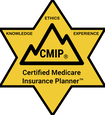On March 27th, the President signed into law the Coronavirus Aid, Relief, and Economic Security Act (CARES Act). The CARES Act is aimed at providing financial relief for the economic downturn caused by the Coronavirus pandemic. I wanted to share some of the highlights of the 880 page CARES Act that will directly impact most of you reading this blog post.
Assistance for American Workers, Families, and Businesses
All U.S. residents with adjusted gross income up to $75,000 ($150,000 married), who are not a dependent of another taxpayer and have a work eligible social security number, are eligible for a full $1,200 “rebate,” $2,400 married. In addition, they are eligible for an additional $500 per child. This is true even for those who have no income, as well as those whose income comes entirely from non-taxable means-tested benefit programs, such as SSI benefits. Estates and trusts are not eligible for this rebate. The rebates are being treated as advance refunds of a 2020 tax credit and taxpayers will reduce the amount of the credit available on their 2020 tax return by the amount of the advance refund payment they receive.
For the vast majority of Americans, no action on their part will be required in order to receive a rebate check as the IRS will use a taxpayer’s 2019 tax return if filed, or in the alternative their 2018 return. This includes many low-income individuals who file a tax return in order to take advantage of the refundable Earned Income Tax Credit and Child Tax Credit.
The rebate amount is reduced by $5 for each $100 that a taxpayer’s income exceeds the phase-out threshold. The amount is completely phased-out for single filers with incomes exceeding $99,000, $146,500 for head of household filers with one child, and $198,000 for joint filers with no children.
Retirement Plan Provisions
IRA Contribution Deadline
The deadline for filing an individual’s 2019 income tax return is extended to July 15, 2020. In an FAQ, the IRS stated “Contributions can be made to your IRA, for a particular year, at any time during the year or by the due date for filing your return for that year. Because the due date for filing Federal income tax returns has been postponed to July 15, the deadline for making contributions to your IRA for 2019 is also extended to July 15, 2020.”
Withdrawals from Qualified Retirement Plans and IRAs, and Plan Loans
The CARES Act provides tax relief for retirement plan and IRA “coronavirus-related distributions” up to $100,000 taken by individuals on or after January 1, 2020 and before December 31, 2020. The CARES Act permits in-service distributions, provides an exception to the 10% early distribution penalty, exempts the distribution from the mandatory 20% withholding applicable to eligible rollover distributions, allows the individual to include income attributable to the distribution over a three-year period, and allows the for the recontribution of the distribution to a plan or IRA within three years.
The CARES Act provides that for plan loans made during the 180-day period beginning on the date of enactment and December 31, 2020 the maximum loan amount is increased from $50,000 or 50% of the vested account balance to $100,000 or 100% of the vested account balance. The due date for any repayment on a loan is delayed for one year (normally five years).
To be eligible for the withdrawal and loan relief, an individual must fall within one of the following categories:
Required Minimum Distributions RMDs
The CARES Act suspends RMDs for 2020. If you have already taken your RMD for 2020 and you do not need the income you have the option of putting the RMD back into your IRA.
Unemployment Insurance Provisions
The Act creates a temporary Pandemic Unemployment Assistance program through December 31, 2020 to provide payment to “covered individuals” who are not traditionally eligible for unemployment benefits, such as self-employed individuals, independent contractors, and those who have limited work history because they were unable to work as a direct result of the coronavirus public health emergency. “Covered individuals” include those who are not eligible for regular unemployment benefits and provide self-certification that the individual is otherwise able to work but for:
The Act also provides an additional $600 per week to each recipient of unemployment insurance or Pandemic Unemployment Assistance for up to four months. There will also be an additional 13 weeks of unemployment benefits through December 31, 2020 to help those who remain unemployed after state unemployment benefits are no longer available.
Here is the link to the PDF of the entire 880 page CARES Act: https://www.majorityleader.gov/sites/democraticwhip.house.gov/files/Senate%20Amendment%20to%20H.R.%20748_0.pdf
Assistance for American Workers, Families, and Businesses
All U.S. residents with adjusted gross income up to $75,000 ($150,000 married), who are not a dependent of another taxpayer and have a work eligible social security number, are eligible for a full $1,200 “rebate,” $2,400 married. In addition, they are eligible for an additional $500 per child. This is true even for those who have no income, as well as those whose income comes entirely from non-taxable means-tested benefit programs, such as SSI benefits. Estates and trusts are not eligible for this rebate. The rebates are being treated as advance refunds of a 2020 tax credit and taxpayers will reduce the amount of the credit available on their 2020 tax return by the amount of the advance refund payment they receive.
For the vast majority of Americans, no action on their part will be required in order to receive a rebate check as the IRS will use a taxpayer’s 2019 tax return if filed, or in the alternative their 2018 return. This includes many low-income individuals who file a tax return in order to take advantage of the refundable Earned Income Tax Credit and Child Tax Credit.
The rebate amount is reduced by $5 for each $100 that a taxpayer’s income exceeds the phase-out threshold. The amount is completely phased-out for single filers with incomes exceeding $99,000, $146,500 for head of household filers with one child, and $198,000 for joint filers with no children.
Retirement Plan Provisions
IRA Contribution Deadline
The deadline for filing an individual’s 2019 income tax return is extended to July 15, 2020. In an FAQ, the IRS stated “Contributions can be made to your IRA, for a particular year, at any time during the year or by the due date for filing your return for that year. Because the due date for filing Federal income tax returns has been postponed to July 15, the deadline for making contributions to your IRA for 2019 is also extended to July 15, 2020.”
Withdrawals from Qualified Retirement Plans and IRAs, and Plan Loans
The CARES Act provides tax relief for retirement plan and IRA “coronavirus-related distributions” up to $100,000 taken by individuals on or after January 1, 2020 and before December 31, 2020. The CARES Act permits in-service distributions, provides an exception to the 10% early distribution penalty, exempts the distribution from the mandatory 20% withholding applicable to eligible rollover distributions, allows the individual to include income attributable to the distribution over a three-year period, and allows the for the recontribution of the distribution to a plan or IRA within three years.
The CARES Act provides that for plan loans made during the 180-day period beginning on the date of enactment and December 31, 2020 the maximum loan amount is increased from $50,000 or 50% of the vested account balance to $100,000 or 100% of the vested account balance. The due date for any repayment on a loan is delayed for one year (normally five years).
To be eligible for the withdrawal and loan relief, an individual must fall within one of the following categories:
- • The individual is diagnosed with COVID-19 by a test approved by the Centers for Disease Control and Prevention;
- • The individual’s spouse or dependent is diagnosed with COVID-19; or
- • The individual experiences adverse financial consequences as a result of being quarantined, being furloughed or laid off or having work hours reduced due to COVID-19, being unable to work due to lack of child care due to COVID-19, closing or reducing hours of a business owned or operated by the individual due to COVID-19, or other factors as determined by the Secretary of the Treasury.
Required Minimum Distributions RMDs
The CARES Act suspends RMDs for 2020. If you have already taken your RMD for 2020 and you do not need the income you have the option of putting the RMD back into your IRA.
Unemployment Insurance Provisions
The Act creates a temporary Pandemic Unemployment Assistance program through December 31, 2020 to provide payment to “covered individuals” who are not traditionally eligible for unemployment benefits, such as self-employed individuals, independent contractors, and those who have limited work history because they were unable to work as a direct result of the coronavirus public health emergency. “Covered individuals” include those who are not eligible for regular unemployment benefits and provide self-certification that the individual is otherwise able to work but for:
- being diagnosed with COVID-19
- a member of the individual’s household has been diagnosed with COVID-19
- the individual is providing care for a family member diagnosed with COVID-19
- a child is unable to attend school because it is closed due to COVID-19
- the individual is unable to get to work because of quarantine order or is self-quarantined based on health care provided advice
- the individual quit his job as a direct result of COVID-19
- the individual’s job is closed as a direct result of COVID-19, or
- is self-employed, is seeking part-time employment, does not have sufficient work history, or otherwise would not qualify for regular unemployment or extended benefits under State or Federal law or pandemic emergency unemployment compensation.
The Act also provides an additional $600 per week to each recipient of unemployment insurance or Pandemic Unemployment Assistance for up to four months. There will also be an additional 13 weeks of unemployment benefits through December 31, 2020 to help those who remain unemployed after state unemployment benefits are no longer available.
Here is the link to the PDF of the entire 880 page CARES Act: https://www.majorityleader.gov/sites/democraticwhip.house.gov/files/Senate%20Amendment%20to%20H.R.%20748_0.pdf

 RSS Feed
RSS Feed



